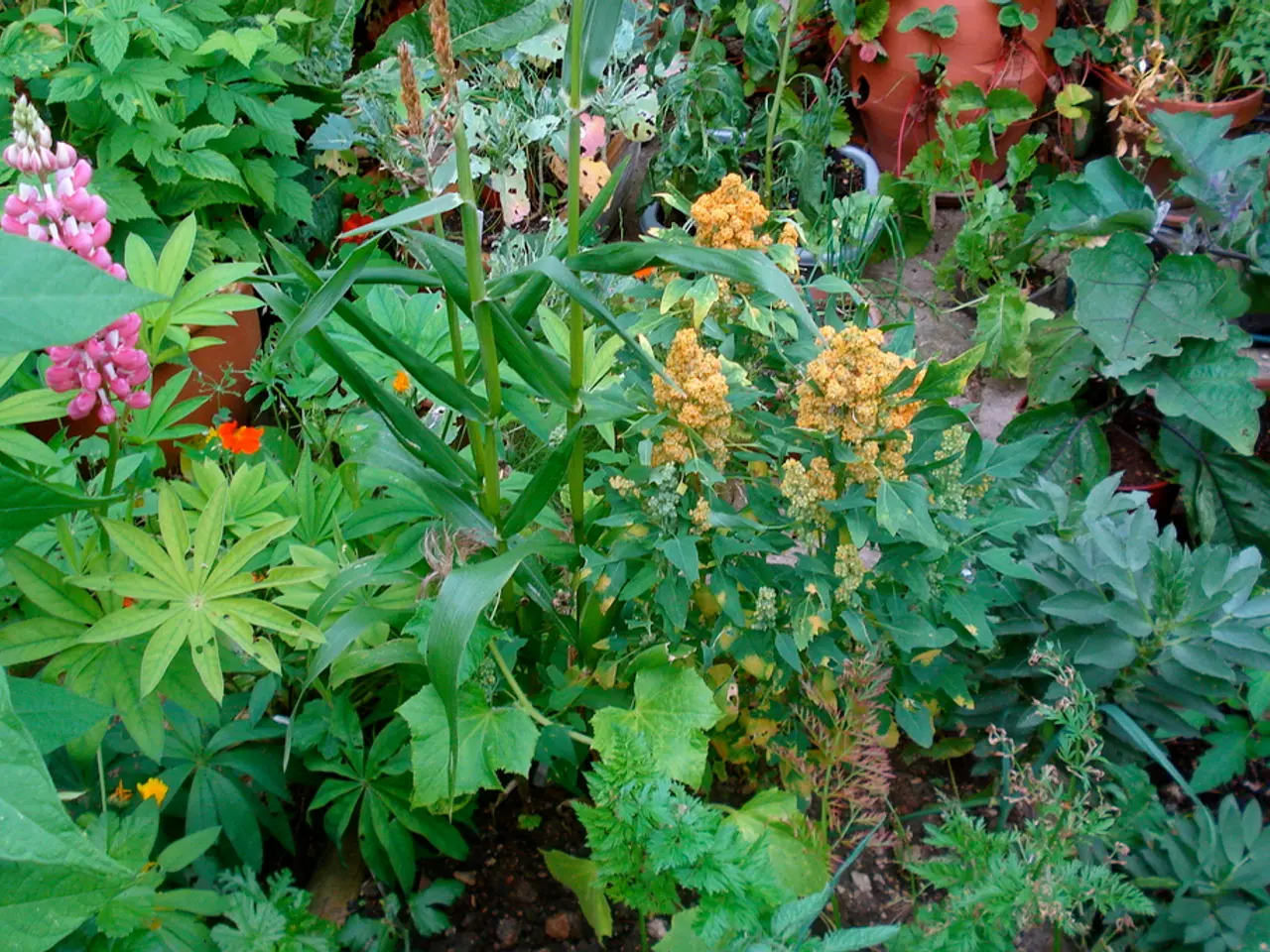Emergence of Novel Greenhouses: A Renewed Wave of Floral Enterprises Revitalizing British Gardens
In the horticultural world, the UK's nurseries are facing a cluster of new challenges, from the loss of overseas markets post-Brexit to the escalating costs of labour, heating, and water. Despite these hurdles, innovative and resilient nursery owners are finding creative ways to adapt and continue growing.
One such example is Hooton's Walled Nursery near Rotherham, opened by father-and-son team Glenn and Dean Charlton. They took on an existing nursery with substantial work needed but managed to retain the necessary infrastructure. Their focus on offering character, individuality, and creating a destination for plant lovers has proven successful.
Similarly, Wildegoose Nursery in Shropshire was established using an old walled kitchen garden, demonstrating the potential of finding derelict or neglected sites to lower initial costs. Meanwhile, Cliff Bank Nursery in Yorkshire was taken on by Ben Preston and Laura Kennedy in 2022, prioritizing affordability and focusing on essentials.
New nurseries are also popping up across the country. No Name Nursery in Kent, set up from scratch in 2019 by Louise Dowle and Steve Edney, focuses on sustainability by using mostly second-hand, reused, or recycled materials. Seagate Nurseries in Lincolnshire has become peat-free due to the impact of the pandemic, joining the growing number of nurseries moving away from peat as a growing medium.
Hannah Fox, former nursery manager at Marchants Hardy Plants, plans to open her micro-nursery, Bright Green Fox, offering a grow-to-order scheme for garden designers and selling at open weekends and plant fairs. Jonny Bruce hopes to open The Field Nursery by autumn this year, adding to the growing list of new nurseries.
The Blooming Wild Nursery in Somerset was bought by Steven and Lindsay Lister in 2022, with a focus on growing perennials and wildflowers. Lynne Moore's plants are all grown peat-free, and she won a Gold medal at the RHS Chelsea Flower Show last year.
Sadly, some British specialist nurseries have had to close their doors. Marchants Hardy Plants in East Sussex recently closed, joining a list that includes Broadleigh Gardens, The Cottage Herbery, Downderry, The Botanic Nursery, Thornhayes Nursery, and Slack Top Alpine Nursery.
However, the closures are not deterring new entrants. Ben from Cliff Bank Nursery expresses hope that their nursery will become another destination for plant lovers, adding to the existing list of such nurseries. Cotswold Garden Flowers is staying put, but founder Bob Brown is handing the reins over to his son Edmund.
Local authorities and communities are also stepping up to support new nurseries. Following community consultation and parental input, councils and nursery providers are redesigning nursery models to better fit current demands. This includes co-location of nursery and primary school children to maximize resource efficiency and keep facilities open.
Engagement with parents, carers, and communities during consultation processes has been crucial. This collaborative approach helps tailor nursery services to community needs and secures local support, which can be vital for the sustainability of new or restructured nurseries.
In summary, while new challenges like financial sustainability and changing demographics are causing some British specialist nurseries to close, new nurseries are responding by innovating their models—such as co-locating with primary schools—and fostering strong community engagement to ensure viability and meet local needs. The UK's horticultural scene remains vibrant and full of potential.
- Horticulture enthusiasts can explore Hooton's Walled Nursery near Rotherham, a destination for plant lovers that prioritizes character and individuality.
- Wildegoose Nursery in Shropshire demonstrates the potential of transforming derelict or neglected sites into successful nurseries with lower initial costs.
- No Name Nursery in Kent emphasizes sustainability by using mostly recycled materials, showcasing innovative approaches in the horticulture sphere.
- Seagate Nurseries in Lincolnshire is among those moving away from peat as a growing medium, reflecting a growing trend towards eco-friendly horticulture.
- Upcoming nurseries, like Bright Green Fox and The Field Nursery, are committed to serving the demands of garden designers and fostering a grow-to-order scheme.
- Local authorities and communities are collaborating to redesign nursery models and engage parents, carers, and community members, ensuring the viability and sustainability of new nurseries.




